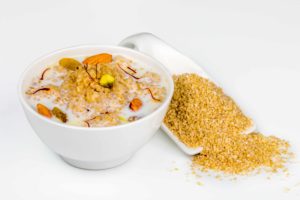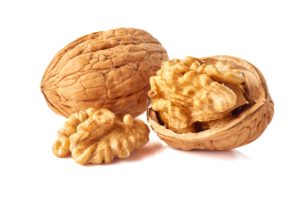
Nutritional Tips to Boost Your Childs Brain during Exam
Academic success, today, is considered as the sure shot ticket to a good job, settled life and a secured future. With all the emphasis on academic excellence, children are definitely feeling the pressure for doing well in their exams. So, the heat is on for both students as well as their parents, who need to provide the best education to their children. In this article, we have listed some nutritional tips that can boost your child’s brain during exam time.
The exam is when the brain is being taxed to cram maximum information in the shortest time and further pressurised to process and reproduce it well during the actual examination. So, the brain needs a good supply of glucose and other nutrients which are important for its various functions. If the brain ceases to function, there is little hope for the body to operate. So, supplying all the nutrients is of utmost importance for the student to perform well.
How to Boost Your Child’s Brain During Exam
Here are some nutritional guidelines for parents to ensure optimum performance of their children during exams –
Jumpstart the Brain with Breakfast
 It is said: “Break your night’s fast with breakfast”. This holds true especially during exams, when the brain needs its most important fuel – glucose, to concentrate, recall and reproduce the information.
It is said: “Break your night’s fast with breakfast”. This holds true especially during exams, when the brain needs its most important fuel – glucose, to concentrate, recall and reproduce the information.
- Avoid starch-laden and sugary breakfast options such as sugar-coated cereals, white bread or sheera. They cause a sharp rise in blood sugar levels, followed by a sudden slump that makes the person drowsy and loses concentration.
- Since the brain requires stable blood sugar levels, fibre-rich breakfast like broken wheat porridge, whole wheat bread sandwich, gobi paratha, sprouts, eggs and toast, and milk with cereal are recommended.
Brain-friendly fats
The brain requires certain fats that specifically cater to its need for adequate functioning. Amongst all fats, omega-3 fatty acids boost your child’s brain functioning by improving alertness, attention span and protects it from debilitating effects of ageing.
- Omega-3 fatty acids protect against heart disease, depression, type 2 diabetes and dry skin.
- Get your share of the daily requirement of omega 3 from flaxseeds, walnuts, tofu and fish.
Memory fats
Phospholipids are well-known memory and attention-friendly fats. Of all phospholipids – acetylcholine, choline and dimethylaminoethanol-DMAE are important. They prevent the brain from racing, reduce anxiety, improve attention span, concentration and promote learning – all the qualities that help boost your child’s brain during revision and examination.
- Egg yolks, organ meats and seafood are rich sources.
B-complex, vitamin C & zinc
 Increased stress during exams calls for additional requirements of vitamins – B complex, C and zinc. They are essential for the synthesis of stress-fighting adrenal hormones. They are also essential for the metabolism of body fats and sugars and the brain energy needed for studying.
Increased stress during exams calls for additional requirements of vitamins – B complex, C and zinc. They are essential for the synthesis of stress-fighting adrenal hormones. They are also essential for the metabolism of body fats and sugars and the brain energy needed for studying.
- Have fresh fruits and vegetables such as amla, citrus fruits, capsicum, green leafy vegetables, kiwi, broccoli, strawberries, mushrooms, soy and whole grains to meet the requirements.
- You may also choose to give your child a B-complex supplement with zinc during the exam to boost immunity and energy level.
Maintain brain cells with adequate proteins
Proteins are important not only for those who are aiming for the muscled-up look but also for students. They maintain brain cells and aid in the synthesis of essential neurotransmitters or brain messengers that are important to boost your child’s brain and keep him alert through those long study hours and at the time of exams.
- Each meal must consist of at least one source of protein such as dairy foods, eggs, whole pulses, dals, seafood and lean meats.
Hydrate your child
Keep your child well hydrated. It stimulates the brain to stay alert and focused. Dehydration can make the person jittery and lose consciousness in extreme cases, especially when the child is under tremendous stress. Ensure that you have at least 2 litres of water daily. Keep a bottle beside your table and sip frequently.
 Snack at intervals
Snack at intervals
Snacking prevents drastic mood swings, maintains consistent blood sugar levels and helps the mind to concentrate well. It is one of the best ways to boost your child’s brain.
- Snack smart at regular intervals on black raisins, almonds, fresh fruits, peanuts, clear soups, walnuts, dates, figs, carrots and boiled eggs.
Lifestyle Tips
Excessive worrying consumes mental energy and blocks the mind from seeing and thinking clearly. Incorporate some of these lifestyle tips to beat exam stress.
- Perform breathing exercises such as prananyam to reduce stress, and increase oxygen in the body and brain.
- Train the mind to stay focused by doing yoga and meditation. These calm the wavering mind, bolster the production of brain chemicals that favour memory, concentration and reduce anxiety. (Practice these a month or two before exams for 10-15 minutes every day.)
These tips will help boost your child’s brain and help the brain to think and function better. Performing well in life is not limited to excellence in academics. For success in life, one needs to concentrate on all-round development which also includes extra-curricular activities. Exercising regularly helps to increase circulation to the brain and protects it from stress.
At Health Total, we have homeopathy plans for children’s problems. Call toll-free ![]() 1-800-843-0206">
1-800-843-0206">![]() 1-800-843-0206 to book your appointment or a free consult with our experts or to get a personalised exam diet plan.
1-800-843-0206 to book your appointment or a free consult with our experts or to get a personalised exam diet plan.
 Snack at intervals
Snack at intervals